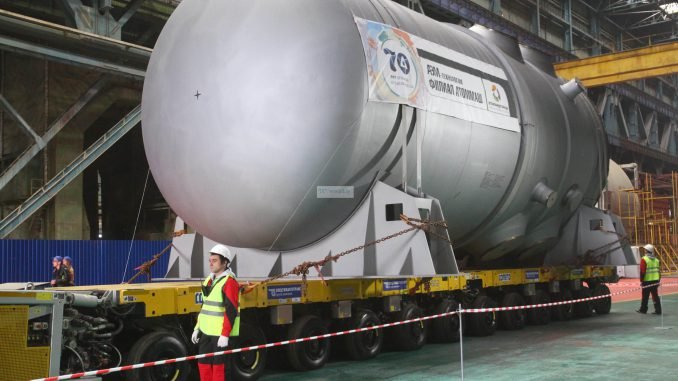
He met with Estonia’s Minister Mark Pomerant on Monday to discuss the Belarusian facility Lithuania says violates international safety procedures specified in the Espoo Convention which specifies intergovernmental obligations regarding projects with potential trans-boundary environmental impact.
“The minister has no doubts that our demands are justified and aimed at ensuring safe and clean environment for our society,” Tankevičius told BNS, adding that Estonian and Lithuanian institutions will continue collaborating to ensure that Belarus’ Astravyets Nuclear Power Plant meets safety requirements.
Espoo Convention implementation committee concluded in 2013 that the Astravyets NPP projects fell short of the treaty’s requirements for environmental impact assessment and consultations with other countries. This March, it suggested that the dispute between Lithuania and Belarus be referred to an international commission of experts.
Minsk has so far refused to admit international inspectors and rejects Lithuania’s criticism of the project, insisting it meets highest safety standards.
The facility is being built by the Russian nuclear energy company Rosatom. Belarus says the first reactor could be put into operation in 2018.

Be the first to comment